The announcement of Joe Biden as President-elect of the United States of America has produced mixed reactions in Iran. The re-establishment of the JCPOA could now be on the cards, and any changes in policy in the White House could well have a knock-on effect on the course of Iran’s own 2021 presidential elections.
Many Iranian officials hope that Biden’s victory will, in time, ease the pressures the Islamic Republic is under. But others are more circumspect, asserting merely that the type of pressures faced by Iran will now be different.
Hassan Rouhani’s government and “reformist” politicians in Iran have cautiously welcomed the outcome of the vote. President Rouhani said the change of leadership would be “an opportunity for the next US government to make up for past mistakes”, while foreign minister Javad Zarif tweeted: “The world is watching whether the new leaders will... accept multilateralism, cooperation & respect for law”.
But the Supreme Leader of the Islamic Republic, together with his inner circle, have insisted that “enmity” with the US will continue regardless of who is in charge. In the aftermath of the race being called on Sunday, Ayatollah Khamenei wrote on Twitter: “America's enmity with Iran is because we have not accepted their oppressive policies. The only way to overcome this enmity is to discourage them from inflicting a major blow. We must become strong and strengthen the tools of true power within ourselves.”
Kayhan newspaper, whose publisher is assigned by Khamenei, asserted that "US hostility against Iran did not start with Trump to end with Biden.” Its editor-in-chief, Mohammad Imani, wrote that Biden would “certainly not return to the JCPOA commitments” because he “sees Trump’s sanctions as an opportunity to exert more pressure."
But the stance of those close to Khamenei is still far from uniform. While repeating the line that all US premiers are fundamentally the same, some Iranian officials have tacitly expressed their happiness that Donald Trump’s tenure will seemingly soon be over. Mostafa Pourmohammadi, a former interior minister who was one of the masterminds of the 1988 massacre of political prisoners in Iran, went so far as to call Trump's defeat a "divine help."
Reviving the Joint Comprehensive Plan of Action: How Soon is Too Soon?
The most prominent discussions in Iran over the US election outcome have dwelled on whether or not Biden will re-commit to the terms of the nuclear accords. President Rouhani has already called on the US to uphold its "commitments" under the JCPOA. But some of those within his administration, such as deputy foreign minister Abbas Araghchi, have said they believe it is “too early” to talk about the reinstatement of the deal.
Some media outlets in Iran have openly expressed the hope that a figure like John Kerry, who served as US Secretary of State from 2013 to 2017 and held the pivotal discussions with Zarif that led to the JCPOA being signed, could now take up the post of National Security Advisor to Biden.
The Iranian reformist activist Mojtaba Vahedi, however, has adopted a more cautious stance. Trump's defeat, he said, could prove a “boost” for the Islamic Republic in the short-term but could prove detrimental to the regime in the long term. Biden, he said, will engage more open-handedly with the regime, meaning it could both attract more allies within the United States and have the power to build up an international consensus.
The Iranian-born Reza Pirzadeh, a member of the Paris-based Iran National Council for Free Elections, is also doubtful that sanctions on Iran will be lifted under Biden – whether or not the US re-ascribes to the terms of the JCPOA. This political activist has pointed to changes in the wider Middle East and the large-scale defeat of opposition factions in Syria, as well as new peace accords between the Arab states and Israel, as evidence that Iran remains on the wrong side of US global policy.
Possible Iran-US negotiations are in a sense as constrained as they ever were. Many officials in Iran would regard discussions with the Biden administration as infinitely more preferable – and justifiable – than talks with the US under Trump, especially after the killing of Ghasem Soleimani in January. But whether any talks are held, and their scope and direction, is a matter that remains under the direct control of the Supreme Leader Khamenei.
Will Biden’s Ascendancy Have a Bearing on Iran’s Presidential Elections?
One former Iranian establishment figure whose comments made headlines this week was Abdolreza Davari, ex-deputy of IRNA news agency and media adviser to former president Mahmoud Ahmadinejad. Although the outcome of the election has now been called by all US mainstream media, even on Monday Davari continued to tweet in support of Donald Trump, re-posting speculation from the pro-Trump camp that the US election could have been interfered with.
Davari has asserted that Ahmadinejad disagrees with him on this matter, and so far Ahmadinejad himself has not publicly commented on the outcome. Those who oppose Ahmadinejad say increased or continued US pressure on Iran could lead to more people rallying around populist demegogue – increasing the likelihood Ahmadinejad’s success in the 2021 Iranian presidential race. Ahmadinejad has, of course, been the most populist politician in Iran since the 1979 Islamic Revolution.
On the flipside, reformist figures in Iran hope that Joe Biden's victory will have the opposite effect. Former MP Mahmoud Sadeghi has said the outcome in the US could "mitigatethe negative view towards Rouhani" while others believe that at the very least, the events of the past few days could have an effect on turnout in Iran next year.
“From now on, it can be predicted that the 2021 election in Iran will be an impassioned one," said Azar Mansouri, deputy leader of the reformist Union of Islamic Iran People's Party. Mustafa Kavakebian, another former MP, also said that with Biden's victory "the reformists' spirits have been somewhat elevated. But that cannot be enough; we must motivate people to run in the elections."
But Mohsen Mirdamadi, the secretary of the Participation Front and a leader of the students who took American diplomats hostage in 1979, has pointed out that Biden's victory alone cannot affect the nature or outcome of Iran's presidential election. Ayatollah Khamenei still has ultimate control over the presidential election because the decision to approve presidential candidates lies in the hands of the 12-member Council of Guardians, whose leading members are assigned by him.
The Supreme Leader has made his stance on the outcome of the US election absolutely clear. In a lengthy speech issued on the day of the vote, Khamenei asserted that the result would have no bearing on Iran’s policy towards the US. “Our policy has been a calculated and transparent policy, one that will not change with the arrival of different individuals,” he said. “Some people speak about the consequences of each candidate winning. Well, certain things might happen, but they will not be of any concern to us as they will not influence our policy in any way.”
As heated discussions broke out in the US about the reliability of the results, Khamenei took to Twitter to re-iterate his position again, calling the fallout “an example of the ugly face of liberal democracy in the US. Regardless of the outcome, one thing is absolutely clear, the definite political, civil, and moral decline of the US regime.”
Joe Biden’s victory will change US domestic and foreign policy – and one that could potentially have a serious impact on the lives and livelihoods of ordinary Iranians. But no matter who is in the White House, it is Ayatollah Khamenei who will decide Iran’s economic, foreign and military policies. If conditions in Iran do not improve in the coming years and Iranians become poorer and less prosperous, this too will have been his decision.
visit the accountability section
In this section of Iran Wire, you can contact the officials and launch your campaign for various problems




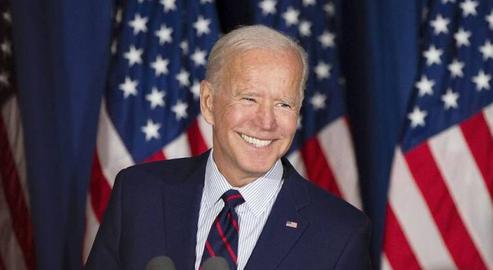
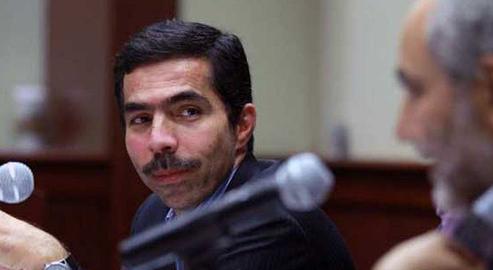
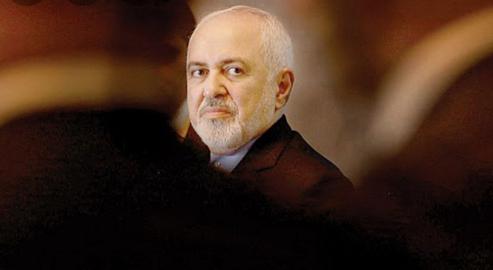

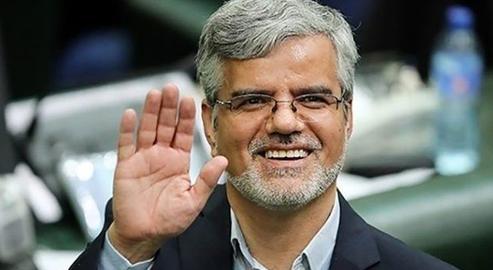



















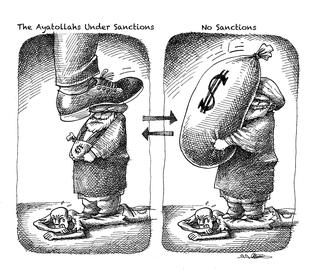
comments